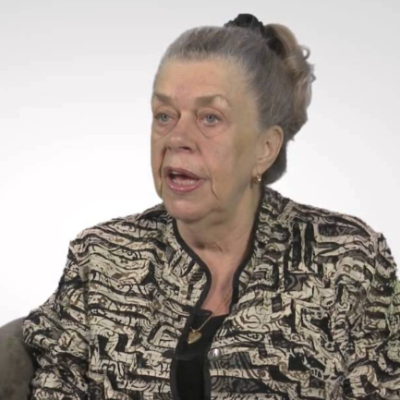The Metropolitan Opera rang in 2024 with a New Year’s Eve performance of a new production of Carmen. Carrie Cracknell’s staging of Bizet’s perennial favorite updates the action from 19th-century Spain to a 21st-century American industrial town somewhere along the Mexican border, trading in the libretto’s matador and bullring for a bronco-busting cowboy and rodeo. It is a dreary place where people yearn for economic excitement and security.
In an interview in the Met Opera program, Cracknell says she was interested in how an iconic work in which a woman dies at the hands of an ex-partner, traditionally envisioned as a crime of passion, “could be interpreted and reimagined”. The most obvious display of her vision is in the video projections screened during the prélude and the three entr’actes. Created by the team of rocafilm and Roland Harvath, the hazy, grayscale images – shadows of people behind the bars of a fence, a silhouette of Carmen with her hand pressed against the scrim – establish a feeling of grimness and entrapment, as if the characters are trying to escape their destiny.
Michael Levine’s harsh and somber set designs – the loading dock of a cigarette factory, the cargo hold of a tractor-trailer truck, a starkly lit gas station – all add to the sense of bleakness and impending doom. But while the Met’s new version relocates the story to contemporary times, it is less than a complete reimagining of the spirit of the well-known tale. Richard Eyre’s 2009 Met production, which updated the opera’s setting to the 1930s, introduced a similar feeling of grimness and the sense that Carmen’s fate was beyond her control.
What is really most remarkable about this Carmen is the performance of the powerhouse cast, in particular that of Aigul Akhmetshina in the title role. This prodigious singer rocketed to stardom in 2018 when, at the age of 21, she sang Carmen at London’s Royal Opera House. She made her Met debut as Maddalena in Rigoletto last season, and at 26, she is the youngest singer to ever take on the role of Carmen at the Met. Dressed in hip-hugging cutoffs and turquoise cowboy boots, singing with marvelous smoothness and clarity, and acting with an impressive naturalness, the charismatic mezzo-soprano displayed tremendous danger and defiance. Her smoldering, rich-bodied voice carried effortlessly into the Met’s vast auditorium, and her totally beguiling interpretation was colored with great emotion, humor and depth.
Stepping in for an indisposed Piotr Beczała at the eleventh hour, Rafael Davila delivered a fine depiction, dramatically as well as vocally, of Don José, the simple soldier whose love for Carmen evolves into an obsession which drives him to kill her. His warm and robust tenor was most elegant in the Flower Song, sung with extraordinary urgency and tenderness. As his relationship with Carmen became increasingly volatile, his upper notes became less reliable, but he managed to be tremendously moving in his final utterances of despair and desolation.
Kyle Ketelsen’s characterization of Escamillo, recast as a cocky rodeo champion instead of a bullfighter, was commanding. Slick and spirited, aware of his good looks, he projected just enough swagger to make him interesting. Dressed all in black, his dashing stage presence was matched by the seductive sound of his firm, full-bodied bass-baritone.
The others in the cast were also first rate. Dramatically, soprano Angel Blue created a convincing portrayal of Micaëla, the country girl in love with Don José, as a conventionally sincere and dutiful young woman. Vocally, she offered some of the most affecting singing of the evening, most notably in her aria, “Je dis que rien m'épouvante”. Benjamin Taylor as Don José's friend Moralès displayed an authoritative baritone. Making his house debut as Zuniga, the captain under whom Don José serves, bass Wei Wu was appropriately malevolent. In another company debut, baritone Michael Adams gave a vigorous and alert performance as the smuggler Dancaïre. As Frasquita and Mercédès, soprano Sydney Mancasola and mezzo Briana Hunter were excellent, especially in their duet in Act 3’s fortune-telling scene.
The Met Orchestra played brilliantly for Daniele Rustioni. After an exhilarating rendition of the prélude – vibrant and exquisitely phrased – he adhered to mostly brisk, appropriately-balanced tempos. Eliciting precise, transparent sound, his direction drew exceptionally beautiful playing from the woodwinds, most notably in the preludes to Acts 3 and 4. The singing from the Met’s adult and children’s choruses was first rate as always.




